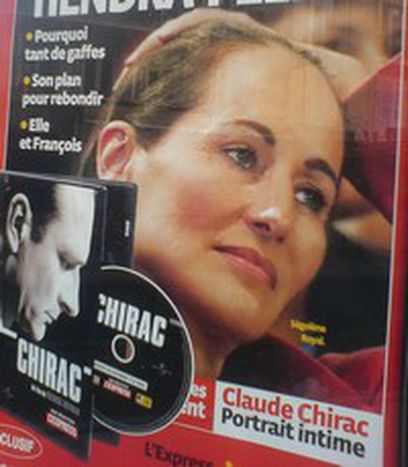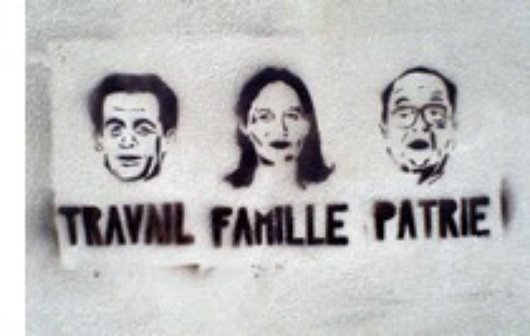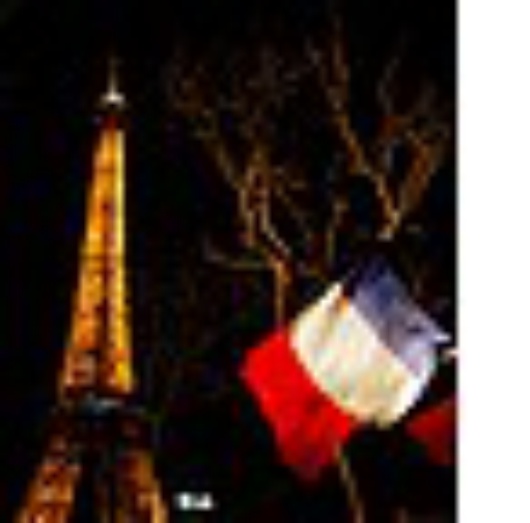
French presidentials: U-turn candidates
Published on
Translation by:
G. RingJacques Chirac's retirement in April marks the end of an era. Whoever succeeds him at the Elysée has their work cut out, especially regarding Europe
Only a few months back, the media was selling the French public a predictable left/ -right battle between the ambitious former right-wing Interior Minister Nicolas Sarkozy (Union for a Popular Movement, UMP), 53, and left-wing muse Ségolène Royal (Socialist Party, PS), 52. The country has apparently not learned its lesson after the shock of the 2002 presidential elections, when the left was ousted in the first round of voting by extreme right leader Jean-Marie Le Pen (Front National, FN). Nor does it seem the 'no' vote to the European constitution in 2005 set any alarm bells ringing.
However, polls in recent weeks reveal that the situation is not so straightforward. Voting intentions for Sarkozy and Royal have dropped in favour of those for 79-year-old Le Pen. More people now intend to vote for the FN leader than in the same period in 2002. François Bayrou, 56, has also seen a recent rise in popularity, with voting intentions of 20%. Only a few months ago, a mere 5% of the electorate said they would vote for the UDF centrist leader.
Ménage à trois
 Faced with an interested but indecisive electorate, eager for change but fearful of the unknown, all three presidential hopefuls are busy doing U-turns. They are seeking out the strategy most likely to please, while avoiding any direct confrontation for the time being.
Faced with an interested but indecisive electorate, eager for change but fearful of the unknown, all three presidential hopefuls are busy doing U-turns. They are seeking out the strategy most likely to please, while avoiding any direct confrontation for the time being.
Until recently, Sarkozy’s politics are have been dominated by a very Atlanticist and economically liberal hue, drawing inspiration from the Blairite model. Recently however, sensing his electorate dwindle, he has adopted a more nationalistic tone. He certainly has not shied away from making statements coloured by extreme right thinking.
Royal defends her vision of a Left that does not call globalisation into question. In her version of the sixth republic, she would equip the French people through education and research, while tackling the discriminatory idiosyncrasies of the market. It's a strategy similar to policies pursued in Northern Europe.
Meanwhile, Bayrou is trying to steal the monopoly of the establishment from Le Pen. He offers an alternative to the misleading left/ right camp, which while still respecting Republican values, have divided French political life for centuries.
EU-ites
The candidates know that modernising the functioning of the European Union depends on the adoption of a new treaty. It would serve as a type of social contract between each European state. Bayrou, Royal and Sarkozy support EU construction and are aware that the current crisis is symptomatic of the absence of a common project. Sarkozy calls for a ratification of a simplified treaty by the French Parliament alone, without any referendum. Meanwhile, Royal and Bayrou support the latter, maintaining that it is the only possible means by which France could adopt a new version of the constitution.
All three agree on the principle of reaffirming subsidiarity. The EU should not replace the member states where it is neither wanted nor needed. But they also want the Union to play a more active role in areas where it does exercise control. For instance, monetary policy may have kept inflation down, but at the detriment of growth. Europe stands accused of doing too little – the French are particularly emotive about tariff protection against social and fiscal dumping in emerging countries, and protecting common borders from illegal immigration.
Feeling Europe
The candidates, and without a doubt the French they are appealing to, want Europe to be a safe haven and not a ghetto. This love/hate relationship shows that a European feeling exists in France. Often disavowed by nationalists, it can also be detected in the stand towards Turkey’s potential accession to the European Union.
One of the first steps towards membership was the EU-Turkey customs union, which came into force in 1995. Only Eurocrats and some business people showed their enthusiasm about this commercial progress. Among normal citizens interest in the issue was almost non-existent. Since however, talks of Turkey’s EU membership have provoked lively debate.
'Where Europe ends' will always be a popular topic. But at least Europeans in general, while they may disagree deep down, do share positive feelings about Europe. And these cannot be summed up as a border-free trade zone.
As for the French candidates, Sarkozy and Bayrou are clearly against Turkey joining the EU. Whilst they remain evasive on the future of the current negotiations, Royal, who wants a more social Europe, goes one further – she still hasn't expressed a clear-cut opinion on the issue.
What is French?
The crisis which France is currently going through may not be economic and social, but rather one of identity: before knowing in which direction to go, they need to know who they are and what they want to be. Such questions should not be asked in terms of identity, rejecting the sense of otherness, but rather as true introspection. In reality, immigration is only one of the facets of a wider movement known as globalisation. For the first time in the history it signifies the emergence of humankind and a global civilisation.
French citizens need to choose. It's no longer about whether they reject or accept this process. They now have to define how much they want to adapt to the world, and how much they want the world to adapt to them.
 Watch out for a cafebabel.com presidential elections special, where we go on the ground in Paris. Onsite from April 16
Watch out for a cafebabel.com presidential elections special, where we go on the ground in Paris. Onsite from April 16
Photos: in-text (banlon1964/ Flickr), homepage (PE Weck/ Flickr), box (Photo: stevec77/ Flickr)
Translated from Présidentielles : à la recherche du temps perdu



